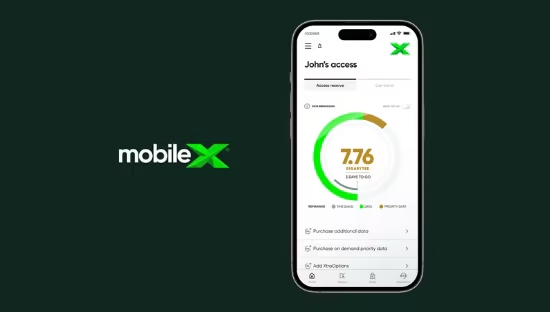
The Ethics of Travel Tech: Are We Sacrificing Privacy for Convenience?
Let’s be honest—travel has never been more seamless. We can now book flights from our phones, open hotel doors with digital keys, skip passport queues with facial recognition, and use eSIMs that connect us the second we land. It’s a dream, right? But behind the glow of convenience, a question keeps creeping up: Are we giving up too much of our privacy in exchange for tech that makes travel easier?
That question matters more than ever, and it’s not just a theoretical one. The lines between convenience, security, and privacy are getting blurrier with each travel app we download, each biometric scan we agree to, and each time we allow our location to be tracked for “better recommendations.”
So let’s dive into it — no jargon, no finger-pointing. Just a real, down-to-earth look at where travel tech is heading, and what it might be costing us.
Convenience Is Addictive—and Travel Tech Knows It
When you’re racing through an airport, and your phone buzzes with a gate change alert—that’s travel tech working its magic. When your hotel app lets you check in remotely and unlock your room without ever seeing the front desk—that’s convenience.
The rise of biometric passports, smart borders, app-based transportation, and AI-powered travel assistants is proof that travel tech isn’t slowing down. In fact, it’s pushing toward a completely contactless, hyper-personalized experience.
But here’s the thing: the smoother the tech, the more data it needs. And we rarely stop to ask, who’s collecting that data, and what are they doing with it?
From Check-Ins to Check-Ups: The Data Trail We Leave Behind
Let’s say you use an app like TripIt or Google Trips to plan your itinerary. It reads your emails, scans your bookings, and gives you suggestions. Super handy. But now your entire travel history, preferences, and even your flight delays are part of your digital footprint.
Then, there’s facial recognition at immigration. Yes, it gets you through faster. But that face scan is stored — maybe for days, maybe forever—depending on the country or company. Some travelers don’t mind. Others didn’t even know they agreed to it.
Your smartphone? It’s practically a live feed of your life while you travel. Location data, contactless payments, digital boarding passes, eSIM usage—all trackable, storable, and sellable.
The tech works so well because it knows you. But that knowledge can be used in ways that feel… unsettling.
Is It Worth the Trade-Off?
Here’s the heart of it: travel tech offers speed, simplicity, and even safety. But in return, we’re offering up something far more personal—our behaviors, our biometrics, and our locations.
And once that data is out there, it’s hard to control. Who sees it? What if there’s a breach? What if it gets sold to third parties?
There’s also a power imbalance. Most travelers don’t read the fine print on data permissions. And even if they did, they often don’t have another option. Want to skip the 40-minute customs line? Use the face scanner. Want to check into your Airbnb? Share your government ID.
We don’t exactly get to choose privacy or convenience. The system is increasingly designed so you have to trade one for the other.
Are Companies Doing Enough?
Some companies genuinely try to be transparent. Apple, for instance, has made privacy a core part of its brand. Others, not so much. Many travel tech startups—especially those racing to innovate—may not have strong privacy protocols in place. They’re focused on growth, not governance.
And even for the big players—airlines, hotel chains, booking platforms—data security is often reactive, not proactive. It usually takes a data breach or a scandal to get real improvements in place.
What’s needed is regulation that actually keeps up with innovation. GDPR in Europe and similar laws in other regions are a start, but they’re often poorly enforced, especially when it comes to international travel platforms.
What Can We Do About It?
Look, we’re not suggesting you cancel your apps, ditch your smartphone, and go full analog (unless you’re into that). But we can be more intentional.
Here are a few things to keep in mind:
- Know what you’re agreeing to. Check app permissions and privacy policies—even briefly.
- Use guest modes and VPNs when accessing hotel Wi-Fi or location-based services abroad.
- Be selective about biometrics. Opt out when possible (some airports allow this), or at least know when your face is being scanned.
- Use services that let you stay anonymous. Some travel platforms let you book without creating a profile or tying it to a Google account. Worth considering.
- Support brands that prioritize privacy. This includes smaller eSIM providers, hotels, or travel platforms that don’t over-collect data.
Being a savvy traveler isn’t just about getting the best deal or skipping lines. It’s about protecting yourself digitally, too.
The Bigger Picture: Tech That Respects the Traveler
What if we imagined a different kind of travel tech—one that respects our boundaries? One that helps us roam, explore, and connect without turning us into walking data mines?
That’s the future we should be aiming for. A balance between helpful and ethical. Between smart and secure.
We need more tools that say, “We’ll help you travel smarter, but we won’t stalk you when you’re back home.” That’s a bold ask in a world where data is currency, but it’s not impossible.
Startups could design platforms with privacy by default, not as an afterthought. Governments could create cross-border data standards for travelers. And we, as users, can demand better—not just shinier.
Final Thoughts: Your Privacy Passport
So, back to the question: Are we sacrificing privacy for convenience? In many cases, yes.
But it doesn’t have to be a zero-sum game. The more we talk about it, the more we push for alternatives, and the more we hold tech creators accountable, the closer we get to a system where travel is both effortless and ethical.
Privacy shouldn’t be a luxury or a trade-off. It should be your digital passport—valid everywhere you go.
So next time an app asks for access, or an airport gate has facial recognition, just pause for a second. Ask yourself: Is this worth it? And if the answer is yes, go for it. But at least now, you’re choosing it consciously.
Safe (and smart) travels.











